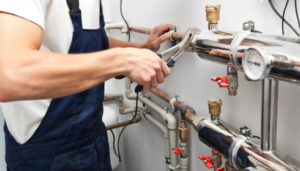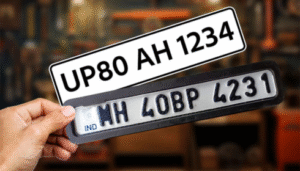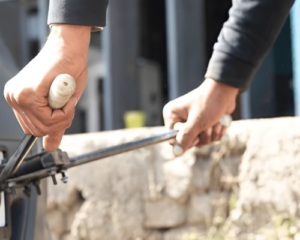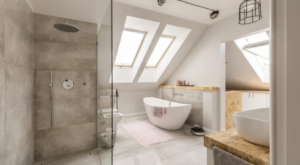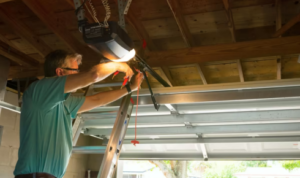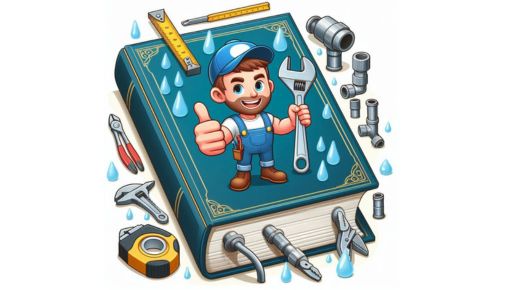
The Essential Guide to Plumbing Everything You Need to Know
When it comes to maintaining a home or business, plumbing plays a crucial role. From ensuring clean water flow to keeping wastewater systems in check, understanding plumbing basics can help you avoid costly repairs and maintain a well-functioning property. Whether you’re a homeowner or a business owner, this essential guide to plumbing will provide you with everything you need to know to keep your plumbing systems running smoothly.
What is Plumbing?
Plumbing refers to the system of pipes, fixtures, tanks, and other apparatuses used to convey water, gas, waste, and other fluids within a building. It involves everything from installing water heaters to fixing leaky faucets. Proper plumbing ensures that your property has access to clean water and a reliable drainage system, preventing health hazards and maintaining comfort.
Why is Plumbing Important?
The importance of plumbing cannot be overstated. It provides the following essential benefits:
- Water Supply: Plumbing ensures that clean, potable water flows into your home or business, providing you with drinking water, water for cooking, cleaning, and bathing.
- Wastewater Disposal: Plumbing systems safely dispose of waste products through drains, ensuring hygienic living conditions.
- Comfort and Convenience: Modern plumbing offers the convenience of hot and cold water on demand, reliable sewer systems, and appliances that work efficiently.
Types of Plumbing Systems
Understanding the different types of plumbing systems is essential for knowing what needs maintenance or repair. The three main categories are:
- Water Supply Plumbing: This system delivers clean water to your property. It connects to the municipal water supply or a private well and distributes water to faucets, showers, and appliances.
- Drainage Plumbing: This system removes wastewater from your property. It includes pipes and fixtures like sinks, toilets, and bathtubs that funnel waste into sewer lines or septic systems.
- Gas Plumbing: Gas plumbing systems provide natural gas or propane to appliances like stoves, water heaters, and dryers. Gas leaks can be dangerous, so it’s important to have a professional inspect these systems regularly.
Common Plumbing Problems and How to Address Them
Even the best-maintained plumbing systems can experience issues over time. Here are some common plumbing problems and tips on how to address them:
- Leaky Faucets: A dripping faucet is an annoying problem and can waste gallons of water. To fix it, you might need to replace a worn-out washer or cartridge.
- Clogged Drains: Clogged drains are common in kitchens and bathrooms. Regularly clean your drains and avoid pouring grease or non-flushable items down them. If the clog persists, a plumber can use a drain snake to clear it.
- Running Toilets: A running toilet not only wastes water but can also drive up your utility bills. Often, the issue is a faulty flapper or valve. Replacing these parts can restore the toilet’s proper function.
- Low Water Pressure: Low water pressure can be caused by a buildup of mineral deposits in pipes or a malfunctioning pressure regulator. A plumber can inspect your pipes and clean or replace the affected parts.
- Frozen Pipes: During cold weather, pipes can freeze, causing them to burst. Insulate your pipes and allow faucets to drip slightly to prevent freezing. If a pipe does freeze, you should call a plumber to thaw it out safely.
How to Prevent Plumbing Issues
Preventing plumbing issues is easier than fixing them. Here are some proactive tips to keep your plumbing system in top shape:
- Inspect Pipes Regularly: Regular inspections can help you catch small issues before they turn into big problems. Check for leaks, corrosion, or signs of wear.
- Clean Drains Often: Regularly clean your drains with natural solutions like baking soda and vinegar to prevent clogs.
- Watch What You Flush: Only flush toilet paper and human waste. Avoid flushing items like wipes, sanitary products, and paper towels, which can clog your pipes.
- Maintain Appliances: Ensure that appliances like dishwashers and water heaters are maintained and serviced periodically to ensure optimal function.
When to Call a Professional Plumber
While DIY plumbing fixes can be effective for minor issues, there are times when calling a professional plumber is necessary. Here are some situations when you should call in the experts:
- Major Leaks: Large leaks can cause significant water damage to your home or property. If you notice a leak that you can’t fix yourself, call a plumber immediately.
- Clogged Sewer Lines: If your entire home or business is experiencing drainage problems, it might be a sign of a clogged main sewer line. Plumbers have the equipment to clear these blockages.
- Water Heater Issues: If your water heater is malfunctioning, it’s best to call a plumber. They can diagnose the issue and determine whether it requires a simple repair or a complete replacement.
- Gas Leaks: Gas leaks are a serious safety hazard. If you smell gas in your home, leave immediately and call a licensed plumber to handle the situation.
Choosing the Right Plumbing Professional
Selecting a qualified plumbing professional is essential for ensuring high-quality repairs and service. Here’s how to find the right plumber for your needs:
- Check Credentials: Ensure that the plumber is licensed, insured, and bonded. This guarantees that they are qualified to handle plumbing jobs and that you’re protected if anything goes wrong.
- Read Reviews: Look for customer reviews or ask for references. Positive feedback from past clients can give you confidence in their skills.
- Get Estimates: Before hiring a plumber, ask for an estimate of the costs involved. This can help you compare prices and avoid unexpected charges.
- Ask About Experience: Choose a plumber who has experience with the type of plumbing issue you’re facing. Whether it’s a simple leak or a complex installation, experience matters.
Conclusion
Plumbing is an essential part of any property, and maintaining it properly is key to avoiding costly repairs and ensuring a healthy and comfortable living environment. By understanding the basics of plumbing, being proactive in maintenance, and knowing when to call a professional, you can keep your plumbing systems in top condition for years to come.
Whether you’re dealing with minor leaks or planning a major plumbing project, taking care of your plumbing should be a priority. When in doubt, always consult a licensed plumber to ensure the job is done right the first time.

